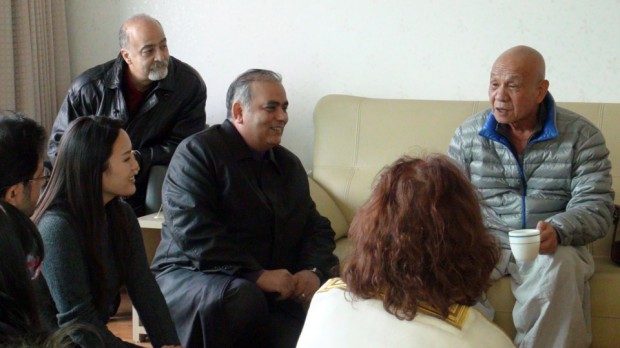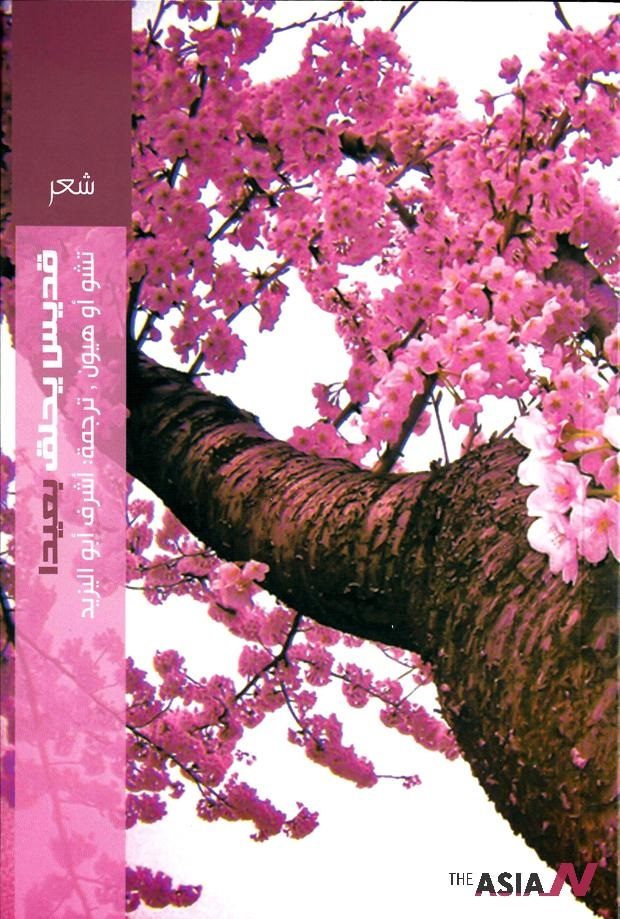[특별기고] 오현 스님이 떠오른다, 결코 저물지 않는 생기 넘치는 그 영혼이

[아시아엔=아시라프 달리 아시아기자협회 회장, 쿠웨이트 <알아라비매거진> 전 편집장] 승려이자 시인 오현 스님의 시집 ‘아득한 성자’를 아랍권에 소개한 적이 있다. 그 작업은 백담사에 있는 스님의 혼 그 자체를 머나먼 아랍땅으로 옮기는 것과 같았다. 오현 스님의 시를 읽고 명상에 잠기면 삶이 바뀌고, 또 새로운 사유의 세계로 떠나는 것 같은 기분이 들곤 했다.

2013년 가을 ‘아득한 성자’의 아랍어판 출간을 기념하는 자리에 모인 이들은 너나 할 것 없이 오현 스님의 시에 깊은 감동을 받았다. 오현 스님은 한국 고전시의 근간이자 한국 시문학에서 가장 많이 사용됐던 시조 형식을 즐겨 사용했는데, 그는 한 마디 한 마디를 넘나들며 종교적 철학을 예술로 승화시켰다.
필자의 어린 두 딸도 오현 스님의 시에서 영감을 받아 그를 위한 그림을 그린 적이 있다. 필자가 이 그림을 건네자 스님은 그림에 입을 맞추고 상자에 넣어 고이 간직했다. 또 스님은 그 보답으로 내 딸들을 위한 선물도 직접 골라줬다. 이는 스님의 배려가 담긴 감사의 표현이었는데, 내 딸들에겐 더할 나위 없는 자랑거리가 됐다.
조오현 스님이 선종하신 지 5년이 흘렀다. 그의 육신은 우리 곁을 떠났지만, 혼은 여전히 우리 곁에 자리하고 있다. 매일 안부 인사를 건네듯 스님의 책을 꺼내 들면 그가 내 앞에서 낭송했던 구절들이 떠오른다.
남산에 올랐다가
석양을 바라보았다.
서울은 늪이었다.
검붉은 거품이 으르렁거릴 때,
내 육체는 늪에 빠진 개구리밥 잎사귀에 달라붙은
거머리에 지나지 않았다.
이 곳 카이로에서, 구름을 볼 때마다 그가 떠오른다. 그 구름이 우리의 성자를 하늘 높은 곳으로 데려갔을까? 철새를 볼 때 마다 그가 떠오른다. 철새들은 자연을 예찬했던 그의 노랫말을 전하러 여기저기 떠돌고 있을까? 장미를 볼 때마다 그의 미소가 떠오른다. 결코 저물지 않는 생기 넘치는 그 영혼이.
The Saint Who Flew Away Five Years Ago!
by Ashraf Dali
When I brought to the Arabic library – for the first time – the poems of the famous Korean Poet and Monk Cho Oh Hyun, in his book (Far-Off Saint), via an English translation, I felt that I was conveying a piece of a soul that resides in the Baekdamsa Temple, whose hands touch the sky in northwestern South Korea. The poems of the monk; who keeps his Buddhist name, could change one life for another, and create a world of wisdom in which one lives; when he reads, when he remembers, and when he meditates.
In the eyes of the Egyptian readers of writers and artists, who gathered in Cairo, in the fall of 2013 to celebrate this translation, I saw that admiration for the poems of Monk Cho Oh Hyun. The poems he fashioned into the form of sijo; the original poetic genre that has its roots in classical Korean poetry and developed from generation to generation to be the most appropriate and most used form in the poetic tradition of the Korean people, as songs of time to become an expression of our saint’s philosophy who is one of the most prominent to use this type of writing verses, presenting his Buddhist philosophy in exquisite poetic forms.
Inspired by the poems of this collection, my two young daughters, Huda and Fadwa, drew colorful cards, which I carried with me to dedicate to my late friend. He kissed them and put them in their box, expressing his gratitude and appreciation. This was the appreciation of a painter with words and a brush together, and he chose gifts for my two daughters that they are still proud of.
Five years have passed since Monk Cho Oh Hyun passed away. It’s been a long time since he’s gone, but for us he is not absent: Every day I look at his book as if I’m greeting him, and when I visit Seoul, I remember his words:
I went up Mount Namsan,
Watched the setting sun.
Seoul City was swamp
When dark red foam was gurgling.
This my body was nothing more than a leech
Sticking into a leaf of duckweed in that swamp.
As for Cairo, I see every cloud that reminds me of him, as if it were the cloud that flew our saint to the heights, and I see every migrating bird as if it were a messenger from him singing his words of love for nature, and I see in the smile of every rose that cheerful spirit from which the sun never sets.





